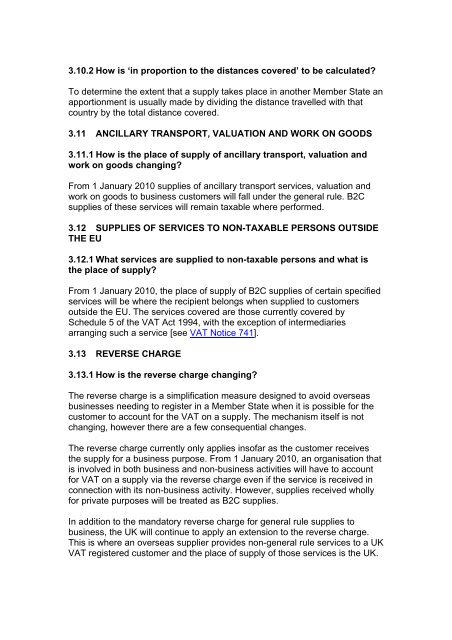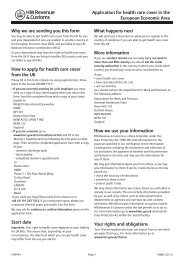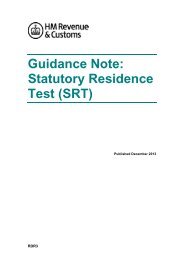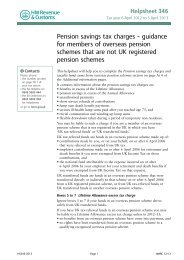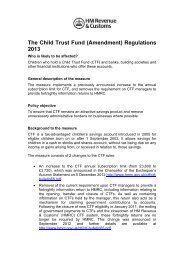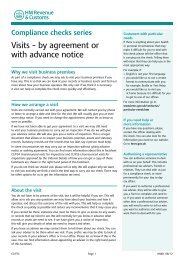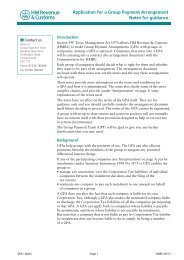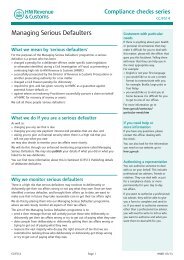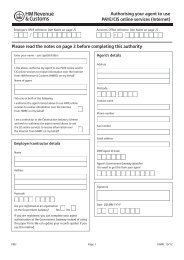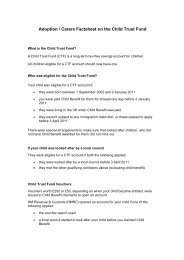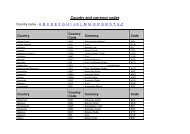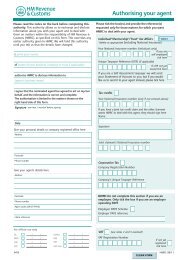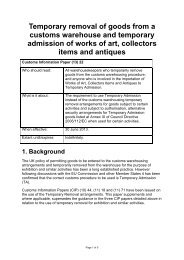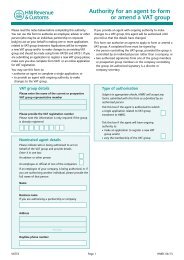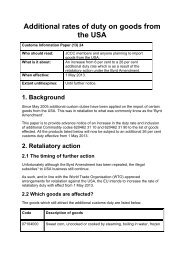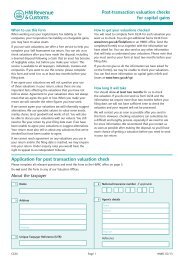cross border vat changes 2010 - HM Revenue & Customs
cross border vat changes 2010 - HM Revenue & Customs
cross border vat changes 2010 - HM Revenue & Customs
Create successful ePaper yourself
Turn your PDF publications into a flip-book with our unique Google optimized e-Paper software.
3.10.2 How is ‘in proportion to the distances covered’ to be calculated?<br />
To determine the extent that a supply takes place in another Member State an<br />
apportionment is usually made by dividing the distance travelled with that<br />
country by the total distance covered.<br />
3.11 ANCILLARY TRANSPORT, VALUATION AND WORK ON GOODS<br />
3.11.1 How is the place of supply of ancillary transport, valuation and<br />
work on goods changing?<br />
From 1 January <strong>2010</strong> supplies of ancillary transport services, valuation and<br />
work on goods to business customers will fall under the general rule. B2C<br />
supplies of these services will remain taxable where performed.<br />
3.12 SUPPLIES OF SERVICES TO NON-TAXABLE PERSONS OUTSIDE<br />
THE EU<br />
3.12.1 What services are supplied to non-taxable persons and what is<br />
the place of supply?<br />
From 1 January <strong>2010</strong>, the place of supply of B2C supplies of certain specified<br />
services will be where the recipient belongs when supplied to customers<br />
outside the EU. The services covered are those currently covered by<br />
Schedule 5 of the VAT Act 1994, with the exception of intermediaries<br />
arranging such a service [see VAT Notice 741].<br />
3.13 REVERSE CHARGE<br />
3.13.1 How is the reverse charge changing?<br />
The reverse charge is a simplification measure designed to avoid overseas<br />
businesses needing to register in a Member State when it is possible for the<br />
customer to account for the VAT on a supply. The mechanism itself is not<br />
changing, however there are a few consequential <strong>changes</strong>.<br />
The reverse charge currently only applies insofar as the customer receives<br />
the supply for a business purpose. From 1 January <strong>2010</strong>, an organisation that<br />
is involved in both business and non-business activities will have to account<br />
for VAT on a supply via the reverse charge even if the service is received in<br />
connection with its non-business activity. However, supplies received wholly<br />
for pri<strong>vat</strong>e purposes will be treated as B2C supplies.<br />
In addition to the mandatory reverse charge for general rule supplies to<br />
business, the UK will continue to apply an extension to the reverse charge.<br />
This is where an overseas supplier provides non-general rule services to a UK<br />
VAT registered customer and the place of supply of those services is the UK.


